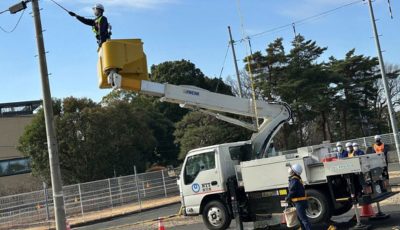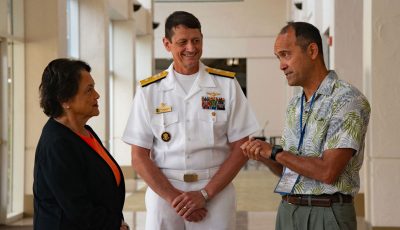Yokoi, Guam, and the many lessons we can learn from his experience
Fifty years ago last month, Japanese army sergeant Shoichi Yokoi was spotted by Jesus Duenas and Manuel Garcia, two Chamorro fishermen from the village of Talofofo, who came across the then middle-aged World War II survivor who had been hiding in Guam’s jungles for almost 30 years.
Unnerved by the presence of encountering other human beings, Yokoi attempted to engage Mr. Duenas and Mr. Garcia but to no avail. He was overpowered shortly after by these two relatively healthy young Chamorro hunters.
Yokoi lived by himself for almost two decades after the conclusion of World War II, not far from a couple of other Japanese war holdouts, who eventually passed away. From the early 1960s up through his discovery in 1972, Yokoi lived by himself in total isolation.
He survived by living off the land and referenced lunar cycles to tell time. Yokoi also thought that the war never ended and refused to consider surrendering to the United States.
Perseverance and tenacity
Yokoi’s doggedness and determination to stay alive and not surrender was generally based on the Japanese ethos of loyalty to country and loyalty to the emperor. Japanese citizens of his generation were indoctrinated to believe that it is better to die for Japan than to surrender because giving up was viewed as dishonoring the emperor, the nation, and the family name.
After Yokoi’s discovery, an international media frenzy ensued.
Prior to his departure back to Japan, then-Guam governor Carlos Garcia Camacho—Guam’s first locally elected governor, who entering the last half of his term—met with Yokoi.
Yokoi’s arrival in Japan conjured up old biases and beliefs endemic to Japanese society, some three decades prior. International fame evoked fascination, anger, and curiosity about Yokoi, Japan, Guam, and the Mariana Islands.
Yokoi made subsequent visits to Guam years afterward, which were taken for a variety of reasons that brought about lamentations and perhaps a desire to find partial solace in a world that was relatively new and somewhat foreign to the former Japanese non-commissioned army officer. Yokoi passed in the late 1990s when Guam was led by maga lahi Carl T.C. Gutierrez, a man who was a child during the 1940s wartime era.
Simple things to remember
Yokoi, like our Chamorro family members who experienced the horrors of hot war, keenly understood life’s simplicities and challenges derived from both personal and collective daily living circumstances. Yokoi also keenly understood the importance and need for basic daily necessities that revolved around food, clothing, water, and shelter because his existence revolved around keeping himself alive each day over a span of several decades.
Life for Yokoi was spartan by almost any measure, uncomplicated from a physical resource standpoint. It can never be underestimated how this Japanese army soldier mustered the uncommon ability to adapt to the challenges immediately facing him at every moment.
He knew too well that daily decisions made meant life and/or death. His motivation to live was informed by Japan’s military and national belief system etched and derived from war with the American nation. In his mind there were no gray areas to maneuver and navigate because giving up was not an option.
Today in our post-digital, artificial intelligence, convenience-centric world, Yokoi, along with all of the experiences of our family members who both died and survived World War II throughout the Mariana Islands, must never shelve, dismiss, discount, and compartmentalize into distilled discussions and afterthoughts because too many of our family members and others suffered or passed as a result of the devastation created from World War II decisions and actions.
Lest we forget
Our Chamorro civilization of the Mariana Islands went through disproportionate suffering as a Deep Blue Ocean continent people during World War II. Our immediate family members saw two large and powerful nations take their violent proclivities to our ancient villages, ranches, jungles, and coastal environments.
Today as the United States national government and the Chinese Communist Party national government escalate their work on preparing to fight war in a host of ways using a variety of means, now is the time to reflect on just how destructive World War II was for our people, our region, and worldwide.
World War II was the bloodiest war ever fought in human history. Prior to the final meeting between the American Secretary of War and the American Army general in charge of America’s nuclear weapons program to discuss the final details to drop the atomic bomb on Japan, 1 million Japanese had already died, upwards of 400,000 American had died, Pacific Islander resources were devastated, and millions of Europeans have died.
The Mariana Islands, particularly Guam, became home base in 1944/1945, supporting thousands of American airplane fire bombing missions initiated against the civilian population of Japan, intended to wear down the fierce will of the Japanese nation, prior to the Tinian-based airplane launch carrying American nuclear bombs.
It is in our collective Pacific Islander interest to remember and think about the challenges overcame by folks like Yokoi, the people of Japan and the United States, and our Chamorro Pacific Islander civilization during and after World War II because many important lessons are contained in these personal historical experiences.



























